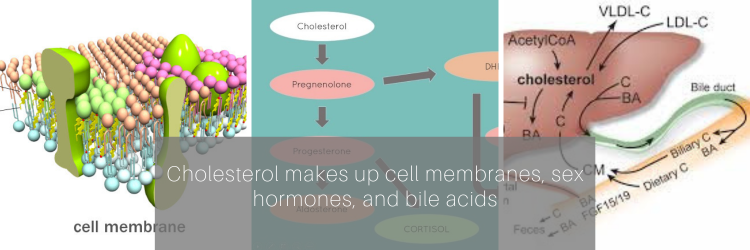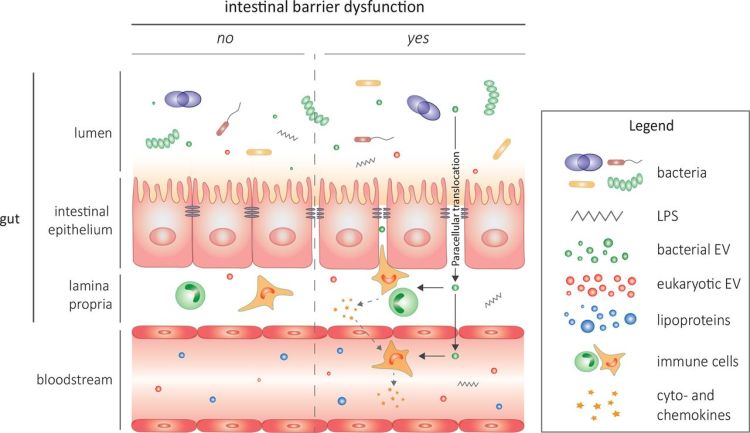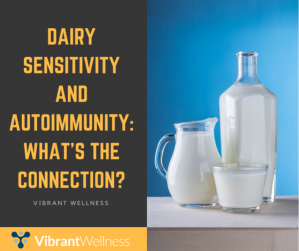The Link Between Your Gut Health and Cholesterol
September is National Cholesterol Awareness Month. If you have ever been to your doctor and your cholesterol tested ‘elevated,’ you may have been told by your healthcare provider to watch your fat intake.
Let’s bust some myths about cholesterol, first
1: Dietary cholesterol does not raise your blood cholesterol. It used to be that we were all told not to eat eggs because they were high in cholesterol, and the healthcare community previously assumed that high cholesterol foods contributed to high cholesterol in humans.
We now know, through thorough and extensive research, that this is not the case. Eating eggs, or other high cholesterol foods, does not elevate your blood cholesterol. [1]
2: High cholesterol is not bad for you. This is a little bit murkier of a statement, because this only appears to be an increased risk for some individuals, and there is more to this than just cholesterol.
What we know is that high cholesterol in itself is not necessarily a cardiovascular disease risk factor, but when viewed in context of additional cardiovascular risk factors such as hypertension, genetics (such as APO E), inflammation, metabolic syndrome risks, and lifestyle factors (such as smoking, diet, and exercise), your risk for heart disease increases. [2]
What Does Cholesterol Do In Our Body?
We need cholesterol, so we do not actually want to see very low cholesterol, especially as we age. Cholesterol is a critical component of cell membranes, including those in the brain and nervous system. [3]
In addition to being a structural component of cells, cholesterol is also the base molecule in our sex hormones (estrogen, progesterone, and testosterone). Without enough cholesterol, we may see sub-optimal sex hormone levels.

Cholesterol also forms the building blocks of our bile acids. Bile acids are what our liver manufactures and releases into the small intestine during and after meals to help us digest fats by emulsifying them (helping them mix with the water-based contents of our GI tract).[4]
Individuals with low cholesterol may often observe that they have trouble digesting higher fat foods, even plant-based sources because they may have low or weak bile output as a result of low cholesterol.
The Gut and Cholesterol Connection
Many people are not aware that our low-density lipoprotein (LDL) cholesterol, also referred to as ‘bad cholesterol,’ is a molecule involved in detoxification of fat-soluble substances in the liver. [5]
The liver manufactures LDL cholesterol particles to carry fats in the blood. Because our blood is water-based, these fats cannot just ‘float’ freely, and must be packaged in lipoprotein particles (what we call ‘cholesterol particles’) in order to travel safely without separating from the rest of our blood, causing clots or other obstructions in our blood vessels.

Increased levels of systemic LPS-positive bacterial extracellular vesicles in patients with intestinal barrier dysfunction, Gut . doi: 10.1136/gutjnl-2018-317726
These LDL particles, in addition to carrying fats, also pick up fats and other substances bound to fats, or which are lipophilic (from Latin ‘lipo-‘ fat and ‘-philos’ loving). LDL particles will eventually travel back to the liver, dropping off their cargo.
Anything that requires the liver to dispose of it, toxic substances or other waste, will go through the liver’s detoxification stages and eventually be excreted either through the kidneys in urine or with bile into the intestinal tract, where it should be excreted with stool.
The Gut Microbiome and Cholesterol
The connection between gastrointestinal inflammation or microbiome imbalances and cholesterol levels in the blood is a bit more complex, but it has been established that when gram negative bacteria from the gut produce an abundance of lipopolysaccharide (LPS), and this LPS slips through the gut barrier, being picked up in the blood stream, LDL cholesterol levels may rise in response to this increased toxic load coming from the gut [5, 6].
When this happens, seeing LDL cholesterol levels rise is actually a good sign that the body’s built-in defenses are responding to this inflammatory threat coming from the gut.
It is still a sign that an inflammatory imbalance of bacteria exists in the gut, however, and you may need to do further testing to assess how best to intervene when this has happened.
References
1. Blesso, C,N., & Fernandez, M. L. (2018). Dietary Cholesterol, Serum Lipids, and Heart Disease: Are Eggs Working for or Against You?. Nutrients, 10(4), 426. doi:10.3390/nu10040426
2. Tsoupras, A., Lordan, R., & Zabetakis, I. (2018). Inflammation, not Cholesterol, Is a Cause of Chronic Disease. Nutrients, 10(5), 604. doi:10.3390/nu10050604
3. Martín, MG et al. (2014). Cholesterol in brain disease: sometimes determinant and frequently implicated. EMBO reports, 15(10), 1036–1052. doi:10.15252/embr.201439225
4. Li, T., & Chiang, J. Y. (2009). Regulation of bile acid and cholesterol metabolism by PPARs. PPAR research, 2009, 501739. doi:10.1155/2009/501739
5. Effect of endotoxin on cholesterol biosynthesis and distribution in serum lipoproteins in Syrian hamsters. Feingold KR et al. J Lipid Res. 1993 Dec;34(12):2147-58.
6. Levels, JH et al. (2005). Lipopolysaccharide is transferred from high-density to low-density lipoproteins by lipopolysaccharide-binding protein and phospholipid transfer protein. Infection and immunity, 73(4), 2321–2326. doi:10.1128/IAI.73.4.2321-2326.2005


